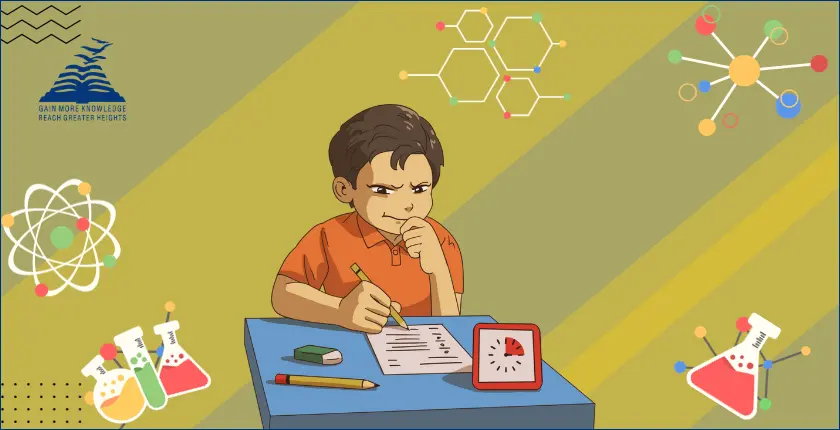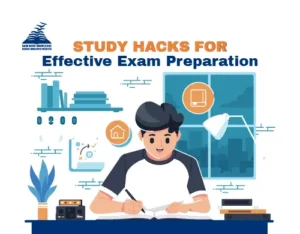Do you think that the way you study isn’t up to scratch? A lot of students are aware that the way they usually study isn’t effective for them. Since schools may be so diverse, this makes perfect sense. Reading assignments are more difficult, class time is shorter, and there are many more problems you may face in school.
Being more effective with your study methods is all that’s required, not changing who you are. Fortunately, there are a plethora of active study techniques that have worked well in school. If you want to know how to study better, we have 14 tried-and-true ideas for you.
Since not every student finds success with the same set of study methods, try out a couple of these suggestions until you discover what works best for you.
Use Class Time Efficiently
Make an effort to be present in every class, listen carefully to lectures, and organise your notes so they make sense to you. When you go back to your notes later, you should be able to make sense of them.
Also, feel free to raise your hand or jot down a note to ask your lecturer or TA a follow-up question after class if anything is unclear.
Make your study guide
Making your own study guide might help you comprehend the content better, even though many lecturers provide them. You can benefit by outlining the key points of what you need to study for both your creative endeavours and your academic pursuits.
Draw diagrams and flow charts
When editing, visual assistance may be a lifesaver. Start by making a list of all you know about the subject at the outset of your study, and then mark the areas where you need to learn more. Make one-page diagrams out of all your review notes as the test date draws near. If you write down your thoughts in this concise fashion, you will be better able to remember all of the material you need to know for the test.
Take practice tests from previous years
Exam practice with previous editions is a tried and true method for aceing your tests. By doing so, you may familiarise yourself with the questions’ structure and, if you keep track of your time, ensure that you devote sufficient attention to each part of the test.
Share Knowledge with Peers
Create study groups in each of your classes; it’s a great opportunity to meet new people while also getting a head start on exam prep. Establishing regular study habits, working more effectively on group assignments, and building self-assurance are all benefits of teamwork. You can do more as a team, learn more as a unit, support one another, and challenge one another to excel.
Make the most of your free time
Your teachers are there to aid you if you are struggling to understand anything. To get a better grasp of the course content, acquire pointers on test prep, or polish your essay, feel free to ask your professor questions. Another benefit is the opportunity to form a bond with your teacher that may blossom into a rewarding mentoring relationship.
Get a head start!
Find out when your final exams are. There is no need to scramble the night before a test if you get a head start. Doing so will nearly always lead to greater results!
Go over the material that isn’t in the study guide
Study guides aren’t meant to cover every possible topic; at most, they outline the most important points to remember. Please ensure that all fields are filled with relevant information.
Take Rest and get enough of sleep
Getting enough sleep is an important matter. You need to get enough sleep in order to give your tests your undivided attention. You should not expect to learn or understand everything at once. Maintain a healthy school-life balance by giving yourself regular study breaks to rejuvenate and unwind.
Get familiar with the exam format
Taking mock exams in the format they will be administered is a tried and true method of test preparation. Knowledge of concepts and terminology will be required for any multiple-choice questions. When preparing for essay tests, make sure you fully grasp all of the topics by thinking about instances.
Take a self-test
You will probably have a better grasp of the material you need to study if you consider and formulate real test questions. Make a list of possible questions for the exam and give yourself a practice test to get a feel for the format and identify areas of weakness. Make your own version of a flash card game with index cards. Involve a family member or friend to lend you a hand.
Change your focus
One strategy to ensure that you retain all of the material for your examinations without being overly focused on any one subject is to switch things around a bit. Change things up before you lose interest! With this approach, you will be able to concentrate longer without becoming distracted.
Enjoy it
Modifying your strategies for studying for the final exam will help you concentrate more. Think about making acronyms, giving yourself a quiz, or praising yourself when you do a good job.
Take Advantage of Downtime
“Easy” weeks should be avoided at all costs. Present moment: the calm before the tempest. When beginning or completing a tough subject, shorter workweeks are better. Put that extra time into writing a lengthy paper or project, or get a head start on your schoolwork. Make a weekly schedule to complete all of your coursework, regardless of whether any specific topics are due. Although it is feasible to devote three hours per week, or thirty minutes per class, it is more productive to divide this time over six days instead of attempting to cram everything into one long session. You are a master student if you know how to channel your energy wisely.
What the Presidency Group of Schools can do for you:
The Presidency Group of Schools stands out as an institution committed to fostering holistic development and academic success. With a curriculum designed to encourage critical thinking, hands-on learning, and a student-centric approach, the Presidency Group of Schools provides an environment that nurtures growth and encourages collaboration, making it an ideal place for students to thrive in their academic endeavours.
Conclusion
Exams are a crucial part of education because you will eventually need to prove your understanding of knowledge. You’re not alone if you frequently get anxious before exams and stress too much, but with these study tips, you can be prepared.
Remember, practice makes perfect, so try to set aside some time each day to review your notes and practice your exam techniques. Additionally, get plenty of sleep and eat a balanced diet to keep your mind sharp and focused. Finally, don’t forget to take regular breaks to keep your energy up.






